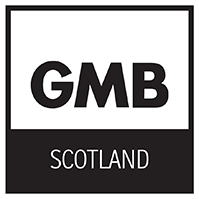Private care homes accused of risking staff and residents in lockdown
Private care homes put staff and residents at risk during the pandemic because many refused to work with trade unions, GMB Scotland told the Scottish Covid-19 Inquiry.
The union, one of the biggest in the care sector, has revealed how poor relations with private firms meant workers were exposed to unnecessary danger.
Paul Arkison, GMB Scotland senior organiser, told the Scottish Covid-19 Inquiry in Edinburgh today that private homes were reluctant to listen to the escalating concerns of staff over the inadequate supply and quality of Personal Protective Equipment (PPE), for example.
He said workers were also pressured to work despite displaying symptoms of Covid and, as a result, there was “a huge amount of mistrust and anger towards these employers”.
In his statement to the inquiry, Arkison added: “We found it difficult dealing with the private care sector, possibly because of the relationship we had with those employers before lockdown.
“As we entered the pandemic, we needed real assistance and input from these companies, which, in my opinion, was not there.
“These companies needed to be challenged all the way.”
His statement to the inquiry revealed contradictory official guidance on when PPE was necessary and what type of equipment was most effective only added to confusion in the first weeks of lockdown.
Arkison said: “There was a lack of engagement from some care providers with trade unions on the use of PPE.
“Some private care homes are very resistant to having any formal recognition agreements with unions where things like could be discussed.
“We were questioning private care companies about not having the correct safety equipment and they would simply reply that it was correct.
“There would be no dialogue and no attempt to understand the concerns of staff.”
Staff described a shortage of PPE in private care homes because, initially, scarce supplies were being directed to NHS Scotland.
Arkison said: “It was a desperate situation and we also had concerns about the quality of PPE that was available.
“Essentially, we felt that our members, overwhelmingly low paid, working class, women were being provided with the cheapest possible masks or really low-quality plastic gowns.”
In addition, the protective equipment was often unsuitable and ill-fitting for the predominantly female workforce.
Arkison said: “This ultimately meant that many forms of PPE such as masks and aprons were too big for most female staff.”
“There did not seem to be any urgency to stock homes with safety equipment.”
Arkison said the delayed testing of care staff was another huge concern along with the transfer of untested patients from hospital to homes.
GMB Scotland had written to then health minister Jeane Freeman in April 2020 calling for testing of all workers in private homes but routine testing did not begin for another five months.
That, along with the Scottish Government changing health and safety guidelines at short notice without discussion with unions, has undermined the confidence of workers in the authorities, according to Arkison.
He said: “It caused confusion and mistrust of ministers that still lingers today.”
GMB Scotland told the Covid-19 Inquiry in Edinburgh that many private care operators have failed to learn the lessons of the pandemic and are still refusing to engage with unions to better protect staff.
Arkison said: “Post pandemic very little has changed. Some private care companies are still looking to disengage with unions and we need all organisations to commit to the best care for residents of care homes and the best conditions for those delivering that care.
“Private care companies need to show they are committed to moving away from the minimum levels of pay and conditions currently in place.
“Lessons must be learned and there must be a better recognition of the value of the work done by people in the private care sector.
“What they went through during the pandemic has still not been properly recognised.”


